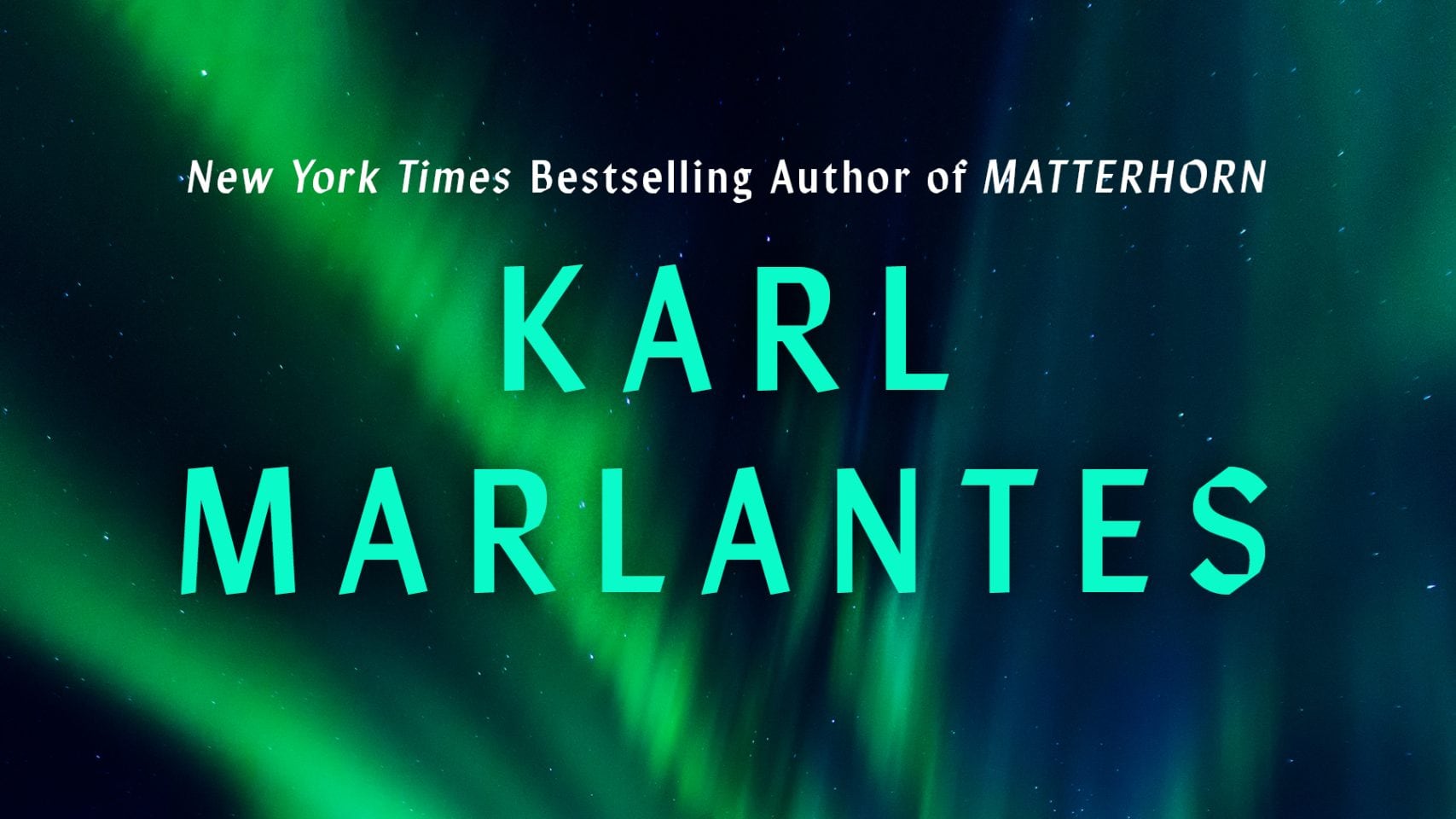December 1946, Finland. In the final days of the year, with the treaties formally ending the Second World War not yet signed, Finnish American veteran and rising State Department official Arnie Koski and his Oklahoman wife, Louise, arrive in Helsinki. The nation has been ravaged by the 1918 Civil War and World War II.
On the other side of Finland’s long eastern border lies the Soviet Union and its brutal dictator, Josef Stalin; in the more distant west, the United States. The wartime alliance of Soviets and Americans is still officially in place, but only barely. Finland, a small nation, finds itself caught up in the beginning of the struggle between these two competing powers that would later be termed the Cold War. It is winter. The sun sets six hours after it rises. Eerie colors of the aurora borealis dance on the snow during the long nights.
Such is the world readers enter in Cold Victory (Grove Press, 352 pages, $28), the new novel by Pacific Northwest author Karl Marlantes. Like his first novel, Matterhorn, Marlantes’ newest work portrays individuals caught up in global events, the third-person narrator shifting from one character to another to create a polyphony of differing, even conflicting, perspectives.
Shortly after the Koskis arrive in Finland, as they begin making the rounds of diplomatic luncheons and cocktail parties, they meet a Russian couple, Mikhail and Natalya Bobrova, who are something like their Soviet counterparts. Arnie and Mikhail recognize each other from their first meeting, in May 1945, as soldiers, when the Western and Eastern fronts converged and the American military and the Soviet Red Army encountered each other as allies. The men drink and recall the war, diplomatic tensions forgotten by men bonding as soldiers, as warriors. Boasting that begins as “the good-natured game played by soldiers the world over,” that of “putting each other and their units down” escalates to a grand challenge: a ski race of 500 kilometers over 10 days, with no resupply, no roads, and no following in each other’s tracks.
Although both Arnie and Mikhail must conceal the true purpose of their skiing through remote backcountry—each claiming to his respective superiors to be “scouting ingress and egress routes” for use in future military operations—Mikhail has more to fear than Arnie: execution, or at least imprisonment, by the MGB, the USSR’s secret police. As Arnie explains to Louise, “They make the Gestapo look like amateurs.”
Oleg Sokolov, modeled after Lavrentiy Beria (Stalin’s longest-serving chief of secret police, who makes a brief fictional appearance in Cold Victory), witnesses the soldiers’ reunion and takes a keen interest in the Bobrovas and the outcome of the race. Even while Sokolov and the Soviet regime (“a world where ‘facts’ could be true or untrue, where the interpretation of ‘facts’ could be as changeable as political leadership”) are presented as the novel’s forces of antagonism, the passages in which the narrator follows Sokolov give readers an understanding of the challenges and fears confronting even a lecherous, immoral man whose job it is to arrest and order executions on the slightest of pretexts.
“Sokolov was pacing nervously in the small waiting room.…The ever-present undercurrent of fear surfaced. In the purges of the 1930s, too many of his friends had been tortured and then killed for far lesser crimes than not having things under control.” The race comes to represent, to all but the two involved, the clash between the Soviet Union and the United States, east and west, communism and capitalism, totalitarianism and democracy.
Cold Victory is a propulsive thriller and immersive piece of historical fiction. Marlantes has clearly done his research on everything from dates of treaties and conflicts to Finnish geography to the February 1947 lunar cycle, and it is a pleasure as a reader to encounter such a fully considered and executed world of realist fiction that is accurate where it should be and imagined in the spaces in between even if the effect is compromised by some elements of implausibility (such as Louise’s impossibly persistent naïveté, especially her decision to publicize the race).
Although Cold Victory lacks the sweeping, panoramic detail of Matterhorn, there are wonderfully evocative descriptions, such as the nearly Tolstoyan detail that Mikhail tastes the unignited lighter fluid when pulling on a cigarette during a climactic scene near the end of the race. Many clunky passages, poor metaphors, and jarring malapropisms (such as “loan” where “lone” is clearly meant), though, make the overall literary quality fall short of the simple felicity that made Matterhorn great.
Even with these shortcomings, Cold Victory offers an engrossing read and, perhaps, an oblique political statement. Marlantes dedicated this work to “all who fight to preserve rule by just law—especially those in Ukraine.” Whether he means Cold Victory as allegory, as a reminder of a dark chapter in the past, or something else is for the reader to decide. The narrative itself, though, moves suspensefully and inexorably, though not predictably, leaving the reader sated and the winners of the ski race and power struggles—if winners they be—with nothing but a cold victory.
GO: Karl Marlantes will discuss Cold Victory with Willy Vlautin at Powell’s City of Books, 1005 W Burnside St., 800-878-7323, powells.com/events-update. 7 pm Tuesday, Jan. 23. Free; $28 to pre-order a signed hardcover copy.
